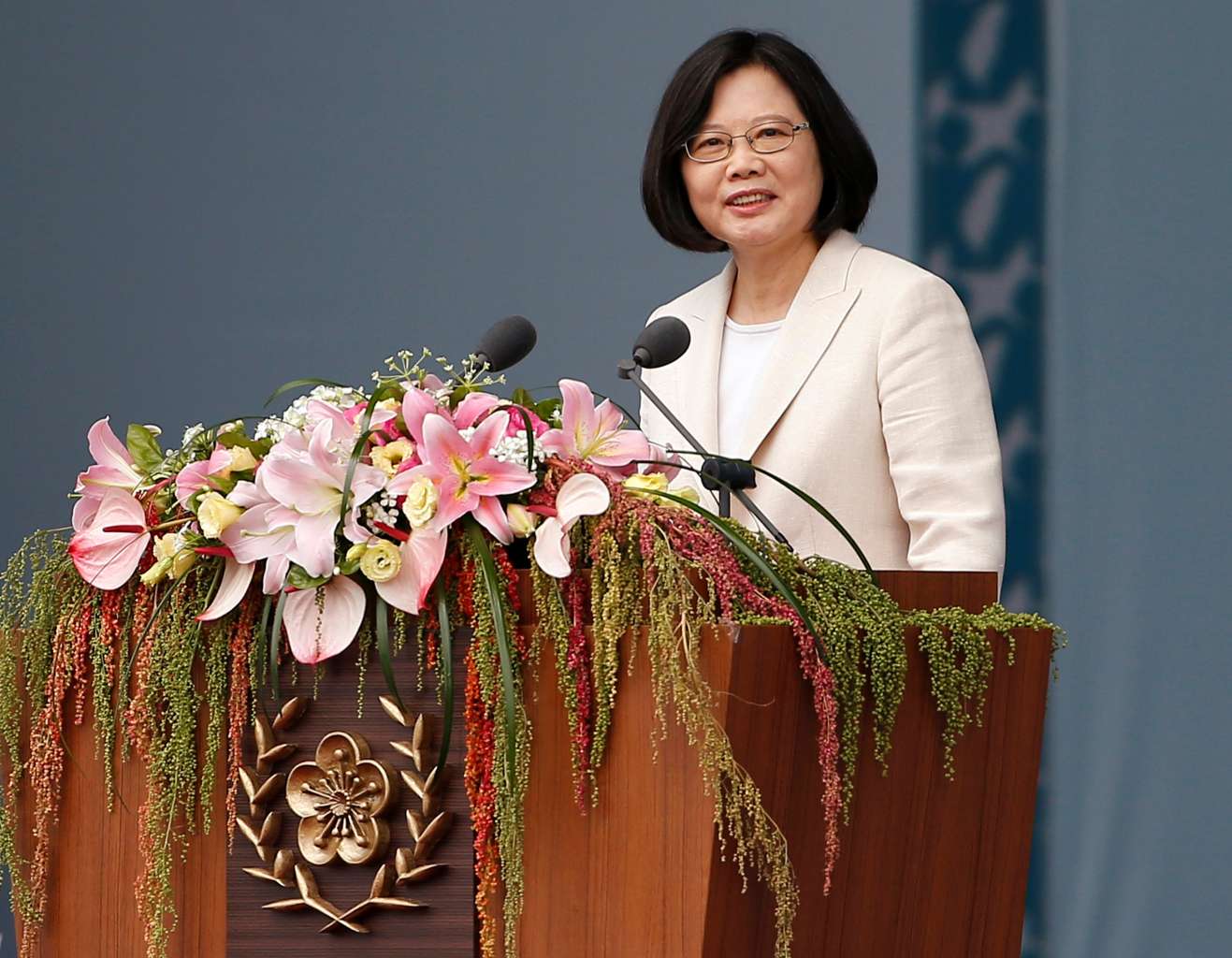Please don't downplay gender, Madame President: The China Post
Sign up now: Get insights on Asia's fast-moving developments

Taiwan's President Tsai Ing-wen addressing the crowd during an inauguration ceremony in Taipei, Taiwan on May 20, 2016.
PHOTO: REUTERS
In its editorial on May 23, the paper notes with concern that the first female president's new cabinet has the fewest women in history.
In an article titled "Taiwan, the place to be a woman in politics," BBC News described President Tsai Ing-wen as a virtually unique case among East Asia's female leaders.
Ms Tsai did not rise to a position of power following in the steps of a father, brother or husband, unlike South Korea's President Park Geun Hye, the Philippines' former President Corazon Aquino or Thailand's former PM Yingluck Shinawatra.
All the while January's legislative election resulted in a record-breaking percentage of female lawmakers at 38 per cent, putting Taiwan ahead of Asian countries and exceeding the international average of 22 per cent.
Also, many notable women have assumed powerful positions without the convenience of political family legacies, including Kuomintang Chairman Hung Hsiu-chu, Koahsiung City Mayor Chen Chu and former Vice-President Annette Lu.
All this paints a promising picture of Taiwan as a thriving society that stands for gender equality.
But it's worth noting that none of the top four female political figures are married or have children.
And among 40 cabinet members, only four are women.
Ironically, the first female president's new cabinet has the fewest women in history at only 10 per cent - Ms Tsai's cabinet has become an "old boys' club," almost as bad as it was 20 years ago, when former President Lee Teng Hui was in office.
Following the cabinet announcement, women's groups protested against Tsai's gender-blindness outside the Democratic Progressive Party headquarters.
And Lee Yuan Chen, feminist and once national policy advisor to former President Chen Shui-bian, openly rejected an invitation to attend the state banquet, saying "Tsai Ing-wen let down Peng Wan-ru, who paved the way for women's political participation in the DPP."
The low ratio of women in cabinet is no negligible issue. Tsai had previously vowed in the 2012 White Paper on Women's Policies that women will take up no less than one third of cabinet members.
So after naming Mr Lin Chuan as premier, had Ms Tsai simply forgotten or disposed of this commitment to women's representation?
Neither would have been excusable for a future leader of a nation.
Ms Tsai stressed appointments had been made based on capability, and urged cabinet members to not "fear outside criticisms and attacks," and rather focus on delivering results.
Her comment is an attempt to rationalise the disproportionate ratio that set back the efforts made by women's rights fighters, actively stripping participation opportunity away from women.
When women lack access to top tables, how are they expected to cultivate and demonstrate their "capabilities?"
Some have questioned the need for gender quotas to exist, making comments such as, "Take a look at Luo Ing-shay, Jennifer Wang or Hung Hsiu-chu. Do you still think it's better to have women in cabinet positions?"
Women who seek power tend to face harsher standards, rejected by notions such as, "We've already given you a chance, but you've performed poorly." However, double standards are evident when men fail and people often assume "It would be better if they were replaced with another group of men."
In Taiwan, political parties are required to nominate women for half of their legislators-at-large nominations, as well as one third of board members at state-run corporations.
Quotas have ensured more female lawmakers, resulting in the passage of bills like the Gender Equality in Employment Act, the Gender Equity Education Act, the Domestic Violence Prevention Act and the Sexual Harrassment Prevention Act.
Earlier this month, Ms Tsai apologised and said she knows very well that having a female president does not necessarily mean an overall higher status of women in society.
This paper reflects hopes that Ms Tsai will keep to her vows and place more emphasis on gender equality in future governance.
Her failure to put more women in her cabinet shows quotas are still necessary to balance the scales, which would induce political parties to pay more attention to grooming female politicians.
And it reminds us it's not enough to have women in positions of leadership if they don't actually stand up for women and women's issues.
Let's not kid ourselves and say that the glass ceiling has been broken, before it actually has been.
*The China Post is a member of The Straits Times media partner Asia News Network, an alliance of 22 newspapers.


